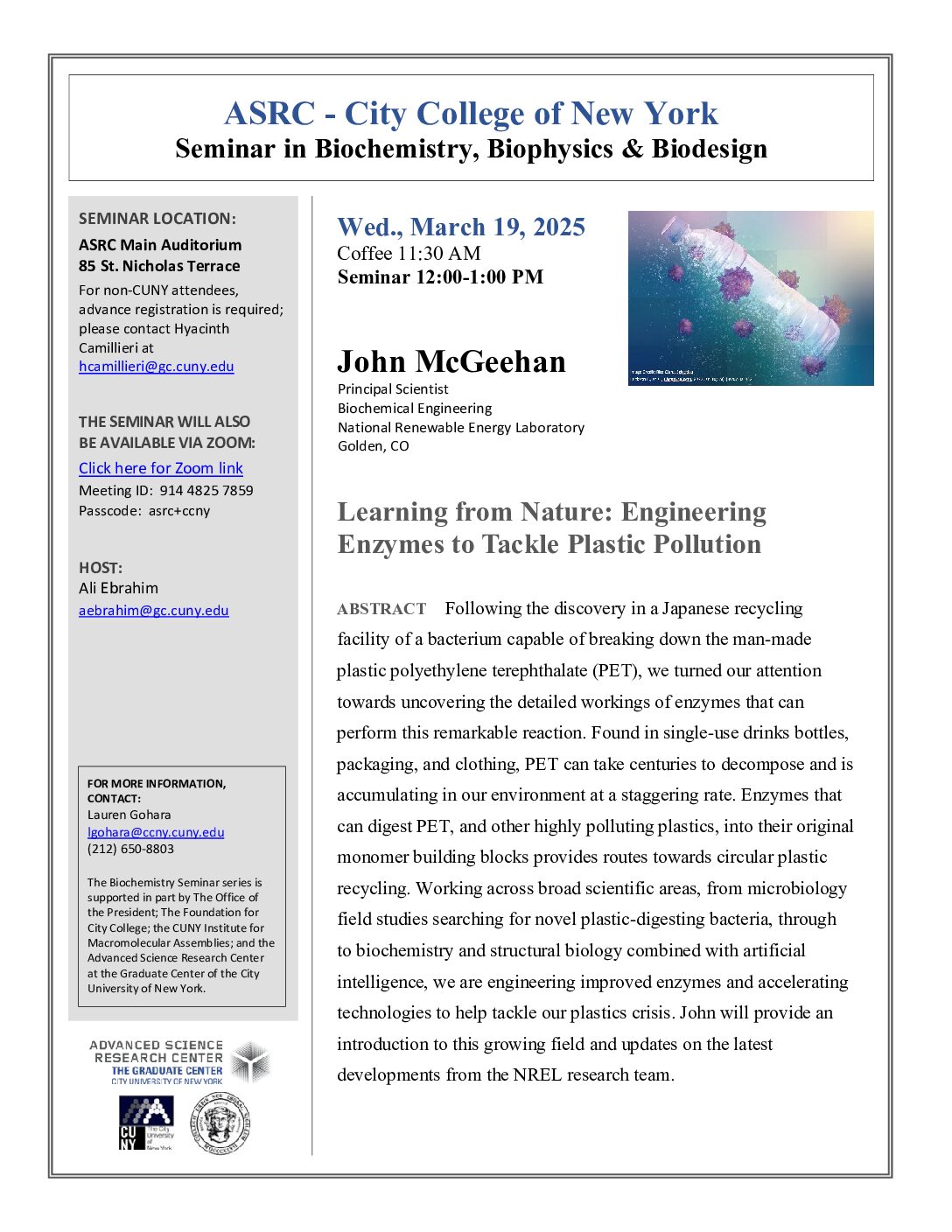
Following the discovery in a Japanese recycling
facility of a bacterium capable of breaking down the man-made
plastic polyethylene terephthalate (PET), we turned our attention
towards uncovering the detailed workings of enzymes that can
perform this remarkable reaction. Found in single-use drinks bottles,
packaging, and clothing, PET can take centuries to decompose and is
accumulating in our environment at a staggering rate. Enzymes that
can digest PET, and other highly polluting plastics, into their original
monomer building blocks provides routes towards circular plastic
recycling. Working across broad scientific areas, from microbiology
field studies searching for novel plastic-digesting bacteria, through
to biochemistry and structural biology combined with artificial
intelligence, we are engineering improved enzymes and accelerating
technologies to help tackle our plastics crisis. John will provide an
introduction to this growing field and updates on the latest
developments from the NREL research team.

